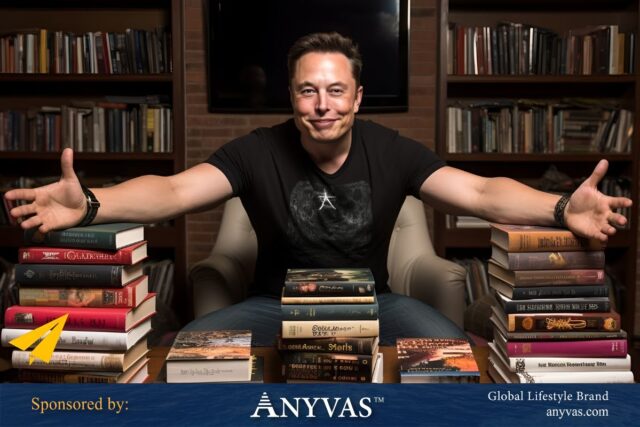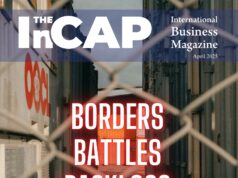Ever wondered what fuels the mind of a visionary leader like Elon Musk? Beyond the rockets, electric cars, and bold ideas for humanity’s future lies a deep love for reading. Musk often credits books as his ultimate mentors, shaping his thinking and inspiring his groundbreaking ventures. In this edition of The InCAP, we bring you nine thought-provoking books Musk believes everyone should explore. These works delve into artificial intelligence, leadership, economics, and even the art of candid communication. Whether you’re an innovator, dreamer, or lifelong learner, these titles promise to spark curiosity and ignite bold ambitions. Let’s dive in!
1. Human Compatible by Stuart Russell
Artificial Intelligence and the Problem of Control by Stuart Russell delves into the transformative potential of artificial intelligence while addressing the critical challenges it poses. The book emphasizes the need to redesign AI systems to align with human values, ensuring they remain beneficial rather than harmful. With insightful analysis and engaging prose, Russell explores the risks of uncontrolled AI development and provides a compelling vision for a future where AI serves humanity responsibly. This thought-provoking work is both a cautionary tale and a guide to navigating the complex relationship between humans and intelligent machines.
2. Zero to One by Peter Thiel with Blake Masters
Zero to One by Peter Thiel, co-written with Blake Masters, offers a groundbreaking perspective on building innovative businesses. Thiel emphasizes creating unique value by exploring uncharted territories rather than competing in existing markets. With practical advice and thought-provoking insights, the book serves as an essential guide for entrepreneurs seeking to shape the future and build something truly original.
3. Merchants of Doubt by Naomi Oreskes & Erik M. Conway
Merchants of Doubt by Naomi Oreskes and Erik M. Conway reveals how a small group of scientists misled the public on critical issues like climate change, tobacco, and acid rain. The authors meticulously uncover the tactics used to sow confusion and delay action. This powerful book is a compelling exposé of corporate influence and the distortion of scientific truth.
4. Life 3.0 by Max Tegmark
Merchants of Doubt by Naomi Oreskes and Erik M. Conway exposes how a handful of scientists obscured the truth on major environmental and public health issues. With compelling research, the book reveals the tactics used to create confusion and delay action.
Life 3.0 by Max Tegmark explores the future of artificial intelligence and its profound impact on humanity. Combining science with philosophy, Tegmark examines how AI could shape society, from jobs and ethics to the very nature of life, urging readers to engage in shaping its trajectory.
5. The Big Picture by Sean M. Carroll
The Big Picture by Sean M. Carroll masterfully bridges science and philosophy to explore life’s most profound questions. Carroll delves into the origins of the universe, the nature of consciousness, and our place within the cosmos. With clarity and depth, he presents a poetic narrative that connects scientific understanding with the search for meaning, offering readers a thoughtful perspective on existence and reality.
6. Lying by Sam Harris
Lying by Sam Harris is a thought-provoking exploration of the impact of dishonesty on our lives and society. Harris argues for the power of truth and examines how even small lies can erode trust and relationships. Through compelling insights and real-world examples, the book makes a case for living with integrity, showing that honesty fosters deeper connections and a more ethical life.
7. Superintelligence by Nick Bostrom
Superintelligence by Nick Bostrom examines the potential rise of artificial intelligence surpassing human intelligence and the profound implications this could have for humanity. Bostrom explores scenarios where superintelligent AI could either lead to unprecedented advancements or catastrophic risks. With rigorous analysis and thought-provoking arguments, the book emphasizes the urgency of aligning AI development with human values to ensure a beneficial future.
8. The Wealth of Nations by Adam Smith
The Wealth of Nations by Adam Smith is a foundational work in economics that explores the principles of wealth creation and the dynamics of markets. Smith introduces concepts like the division of labor, free markets, and the “invisible hand” that guides economic growth. With profound insights into human behavior and commerce, the book remains a timeless guide to understanding economic systems and their impact on society.
9. Radical Candor by Kim Scott
Radical Candor by Kim Scott introduces a powerful management philosophy that emphasizes the importance of caring personally while challenging directly. Through practical examples, Scott advocates for open, honest communication in the workplace, encouraging leaders to build strong relationships with their teams while offering constructive feedback. This approach fosters a culture of trust, accountability, and growth, making it essential for effective leadership and team success.
To get more insights from our Your Books section, please click here.




















